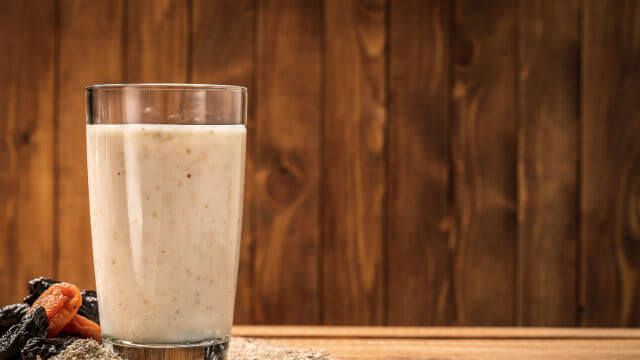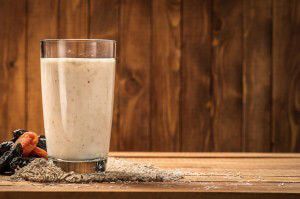
The many benefits of probiotics are only beginning to be realized and researched. Crucial for digestive health, they’ve also been found to be beneficial for weight loss, our immune system and fighting infections, as well as allergies.
Although most people get their probiotics in the form of a pill or yogurt, there’s actually a more potent source of the health-supporting bacteria that you can make yourself at home.
We’re talking about kefir (pronounced keh-feer), a fermented milk product that has been made and enjoyed for centuries due to its health supporting qualities. Although it may sound just like yogurt, Kefir and yogurt differ in a few key ways.
In taste, kefir is a bit more sour and tastes ‘yeastier’ than plain yogurt due to its higher bacteria content and the way it’s cultured. Kefir is also healthier for your gut, as it contains more strains of beneficial bacteria than yogurt—many times more, in fact.
The strains kefir contains also behave more pro-actively in the body in the sense that the bacteria found in yogurt is ‘transient,’ meaning it passes right through the body as you digest it. The bacteria found in kefir, on the other hand, actually ‘re-colonizes’ the digestive tract, so it continues building upon itself to get your gut healthy even after the kefir has been digested.
When compared to probiotic pills, kefir also comes out as being more beneficial. Besides the fact that it’s almost always better to get nutrients from whole food sources, kefir also delivers more beneficial bacteria than probiotic pills, as the food itself actually protects the bacteria from being killed off by your stomach acid as you digest it.
The bacteria in the pill form is less protected, and more likely to be inactive by the time it reaches your intestines. Providing healthy bacteria is not the only benefit of kefir. It is also high in protein, B vitamins—including B12—and calcium.
Those who are dairy intolerant will be pleased to know that non-dairy kefirs made from water or coconut water are available at health food stores, or can be made at home. And although it may seem counter intuitive, those who are lactose intolerant may still want to consider adding kefir to their diets, as numerous studies have shown that drinking kefir improves lactose tolerance and digestion.
 Kefir can be strong, especially if you make it yourself, so it’s best to start out drinking a small amount. Initial side effects may include digestive changes like gas or diarrhea, which may last for a few days as your system gets used to the new bacteria. As the taste may be strong for some, kefir can also be drunk as part of a smoothie or with a small amount of raw honey mixed in.
Kefir can be strong, especially if you make it yourself, so it’s best to start out drinking a small amount. Initial side effects may include digestive changes like gas or diarrhea, which may last for a few days as your system gets used to the new bacteria. As the taste may be strong for some, kefir can also be drunk as part of a smoothie or with a small amount of raw honey mixed in.
Probiotic foods improve your immune system, burn fat, help you to find relief from digestive issues, and are all-around a great addition to a healthy diet. For a powerful dose of probiotics, give kefir a try! Also, stay tuned for our article on the easy and cheap way to make your own at home.
-The Alternative Daily
Sources:
https://www.thealternativedaily.com/articles/probiotics-the-good-bacteria-our-gut-needs
http://www.culturesforhealth.com/difference-between-yogurt-kefir
http://www.growyouthful.com/recipes/kefir.php

